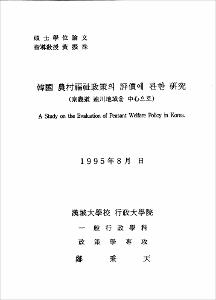韓國 農村福祉政策의 評價에 관한 硏究
- Files in This Item:
-
-
Download
 000000066263.pdf
기타 데이터 / 4.83 MB / Adobe PDF
000000066263.pdf
기타 데이터 / 4.83 MB / Adobe PDF
-
Items in Repository are protected by copyright, with all rights reserved, unless otherwise indicated.
 000000066263.pdf
기타 데이터 / 4.83 MB / Adobe PDF
000000066263.pdf
기타 데이터 / 4.83 MB / Adobe PDFItems in Repository are protected by copyright, with all rights reserved, unless otherwise indicated.